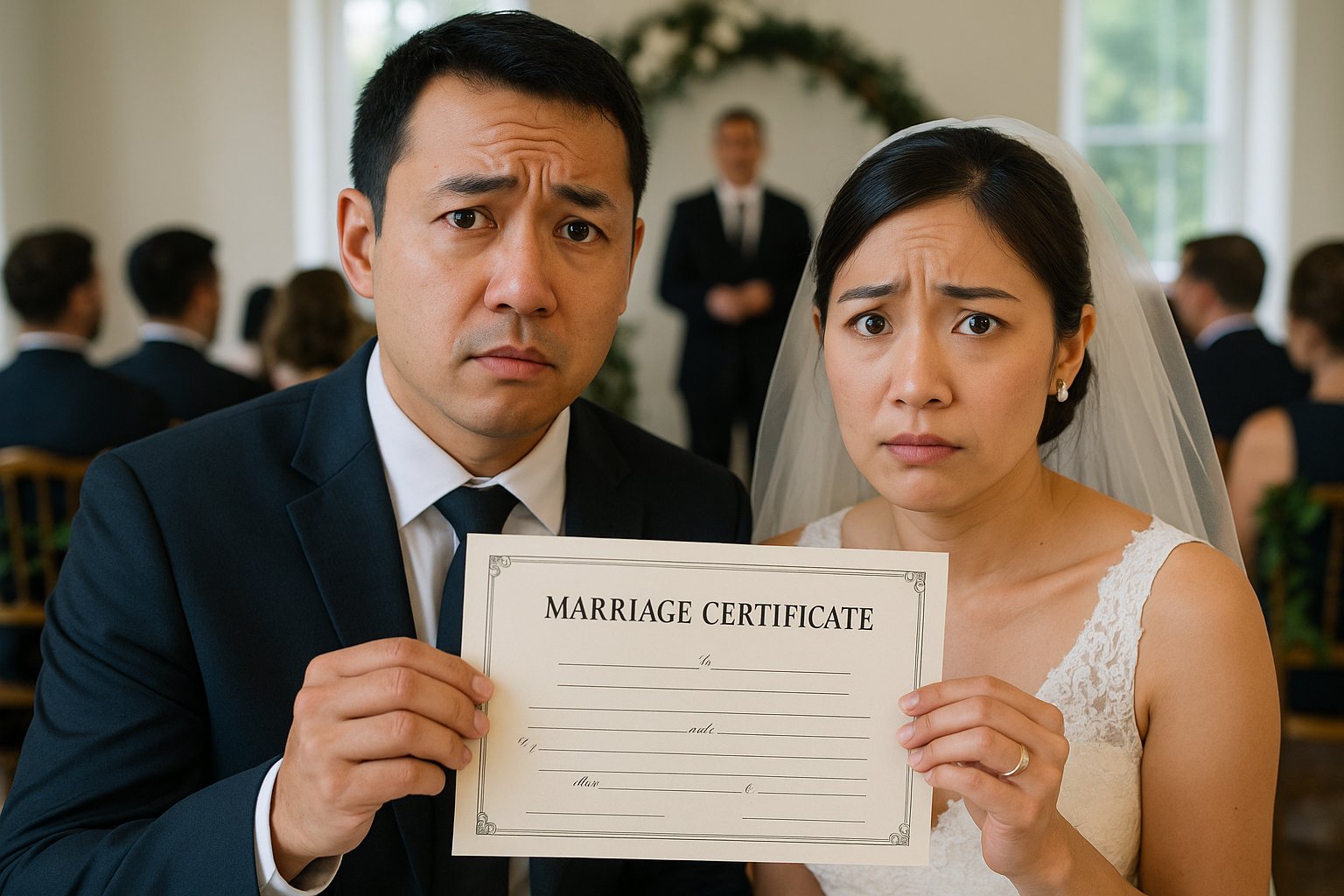- Free Consultation: (213) 251-5533 Tap Here to Call Us
Out of Status? Beware: USCIS Now Denying Green Card Applications and Deporting Without Warning

In today’s immigration climate, applying for a green card through adjustment of status is riskier than ever if you are out of lawful status or at risk of falling out of status during the application process. United States Citizenship and Immigration Services (USCIS) has adopted new policies that allow officers to deny cases outright without first issuing a Request for Evidence (RFE) or Notice of Intent to Deny (NOID). Even more concerning, if your application is denied and you do not have any underlying lawful status, USCIS may now issue you a Notice to Appear (NTA) in immigration court.
This change represents a significant shift in how USCIS handles adjustment of status cases. In the past, applicants often had an opportunity to correct mistakes or submit missing evidence after receiving an RFE or NOID. Now, many cases that are clearly ineligible under the law can be denied immediately, and the denial may be followed by referral to removal proceedings.
What Does This Mean for Adjustment of Status Applicants?
Adjustment of status, under section 245 of the Immigration and Nationality Act, allows certain individuals already in the United States to apply for lawful permanent resident status without leaving the country. However, there are strict eligibility requirements. Most applicants must have been inspected and admitted or paroled, and they must not have violated the terms of their nonimmigrant status. There are some exceptions, such as for immediate relatives of United States citizens, but many family preference and employment-based applicants do not have this flexibility.
The new USCIS enforcement approach means that if you are out of status at the time of filing, or if you lose status while your adjustment application is pending, your case may be denied outright. More importantly, because you would then be unlawfully present in the United States, USCIS may issue you an NTA, placing you into removal proceedings before an immigration judge.
Why USCIS Is Taking This Approach
According to USCIS policy updates, the agency is seeking to strengthen what it calls “benefit integrity.” That means USCIS is more focused on ensuring that only applicants who are clearly eligible under the law are approved. This also means that USCIS officers now have the discretion to deny cases without going through the RFE or NOID process when the evidence clearly shows that the applicant does not qualify.
For applicants, this policy change increases the risks of filing for adjustment of status when there are unresolved issues, status violations, or gaps in eligibility. What was once considered a relatively low-risk filing for some categories can now result in a denial followed by the issuance of an NTA.
Who Is Most at Risk Under the New Policy?
Applicants who should be especially cautious include:
- Family preference category applicants who have fallen out of lawful status and are not covered by the limited exceptions available to immediate relatives of United States citizens.
- Employment-based applicants who have engaged in unauthorized employment or who have accrued unlawful presence for more than 180 days, beyond the forgiveness provisions of section 245(k).
- Individuals with fraud or misrepresentation issues in their immigration history, such as prior marriage fraud findings or misrepresentation upon entry.
- Applicants who lose their lawful nonimmigrant status while waiting for USCIS to process their case, especially in categories with long backlogs.
Immediate relatives of United States citizens do benefit from certain exceptions, but they are still subject to grounds of inadmissibility such as fraud, criminal history, or unlawful presence bars.
What Are the Alternatives to Adjustment of Status?
Because the risks of adjustment of status have increased, many applicants are now considering safer alternatives.
Consular processing may be a better option for those who are not eligible to adjust status in the United States. This involves filing an I-130 petition and completing the green card process through a U.S. consulate abroad. Although leaving the country can trigger unlawful presence bars of three or ten years, applicants can often apply for an I-601A provisional waiver in advance, which allows them to complete the process abroad while minimizing family separation.
Applicants should also make every effort to preserve lawful status in the United States while waiting for their green card case to move forward. Filing timely extensions or changes of status applications can help prevent unlawful presence and reduce the risk of denial or referral to immigration court.
In some situations, individuals may qualify under older provisions such as section 245(i), which allows certain applicants with petitions filed before April 30, 2001, to adjust status despite unlawful presence. Employment-based applicants may also qualify for the limited forgiveness offered under section 245(k), which can waive up to 180 days of unlawful presence or unauthorized employment after the most recent admission.
Why Professional Legal Guidance Is Critical
The new USCIS enforcement policies make it clear that applying for a green card while out of status or with gaps in lawful presence is no longer safe without careful legal analysis. A denial can now trigger the issuance of an NTA, placing you directly into removal proceedings. Once in court, you may have to defend your right to remain in the United States before a judge, which is stressful, expensive, and risky.
Before filing for adjustment of status, it is essential to consult with an experienced immigration attorney who can analyze your history, determine whether you are eligible to adjust, and recommend safer alternatives such as consular processing with a provisional waiver.
Conclusion
USCIS has changed the rules of the game. Out-of-status adjustment of status applicants are now at high risk of denial and referral to removal proceedings. What may have seemed like a routine filing in the past can now result in life-altering consequences. By carefully reviewing your immigration history and considering alternatives such as consular processing, you can avoid these risks and move forward with a safer, more reliable strategy.
This blog is intended for informational purposes only and does not constitute legal advice. Reading this article does not create an attorney-client relationship. Every immigration case is unique and must be reviewed based on its specific facts and applicable law.
For personalized guidance, call Attorney Thomas M. Lee at (213) 251-5533 for a free consultation about your immigration options.








